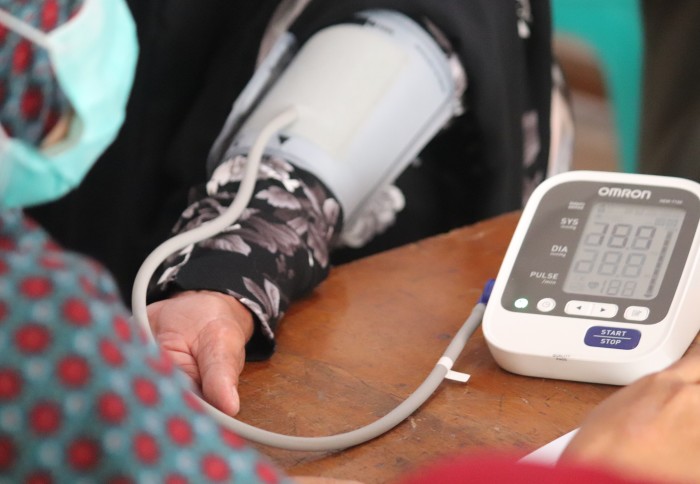Largest study to date identifies risk factors for severe COVID-19
by Meesha Patel

New research has identified factors that put people most at risk of being hospitalised or dying from COVID-19 using data from 2.3 million adults.
The Imperial-led study found groups with a higher risk of severe illness and death from the virus were older age groups, males, people from Asian and Black ethnic backgrounds and people living in areas with greater poverty. These findings are consistent with previous smaller studies.
Those with the highest risk were people with long-term conditions such as severe mental illness and learning disabilities. The researchers call for greater support for those at risk of hospitalisation.
Dr Thomas Beaney, a GP and Clinical Research Fellow from the Institute of Global Health Innovation and lead author of the paper said:
"This work highlights those who are most at risk of becoming seriously unwell or dying from COVID-19. We found that people with learning disabilities or severe mental illness were at particularly high risk. It is vital that this information is used to ensure more proactive care is provided to reduce risk for the most vulnerable and ultimately help save lives.”
"This work highlights those who are most at risk of becoming seriously unwell or dying from COVID-19. We found that people with learning disabilities or severe mental illness were at particularly high risk." Dr Thomas Beaney Institute of Global Health Innovation
The study, led by Imperial’s Institute of Global Health Innovation and published in Nature Communications, looked into trends in hospital admission and death rates from all adults in England with a positive COVID-19 test from October 2020 to April 2021, and whose data could be linked to their medical records. This period covered the ‘second wave’ of the virus, driven by the Alpha variant.
It combined data from NHS Digital, the Office for National Statistics, Public Health England, and anonymised patient health records to look at factors such as age, medical history and ethnicity to make the largest study of its kind to date. The data excluded people who were in care homes.
Trends over the second wave
In the study, patients were traced from the date of their first positive COVID-19 test to emergency admission in hospital or death within 28 days by linking anonymised data sets.
The researchers found the overall risk of hospitalisation after testing positive for COVID-19 in 2.3 million adults from October 2020 to April 2021 was 7.1% and the risk of death was 2.3%. The highest number of infections occurred between November 2020 and January 2021.
Men were found to be 41% more likely to be admitted to hospital and 62% more likely to die compared to women. Those who were recognised by the NHS as being clinically extremely vulnerable because of health conditions that put them under high risk of severe illness from COVID-19 were found to be 85% more likely to be admitted to hospital than those who were not vulnerable.
"Variation may result from several factors including the emergence of COVID-19 variants, mass vaccination and changing strain on health systems." Dr Jonathan Clarke Institute of Global Health Innovation
Having a chronic health condition such as epilepsy and heart disease was also strongly linked with a higher risk of admission and death.
However, the researchers say the pattern in hospitalisation and deaths changed throughout the course of the second wave outside of individual health factors.
They say this could be due to external considerations such as the strain on the health system during winter and the introduction of the COVID-19 vaccination programme in December 2020, which caused a decline in the number of hospitalisations and deaths in older and clinically vulnerable groups after January 2021.
Dr Jonathan Clarke, co-author from the Institute of Global Health Innovation, said:
“Our research highlights that the risk posed by COVID-19 has changed significantly over the course of the pandemic. This variation may result from several factors including the emergence of COVID-19 variants, mass vaccination and changing strain on health systems. Researchers should consider and account for this to best evaluate the effectiveness of treatments and policies related to COVID-19.”
Article text (excluding photos or graphics) © Imperial College London.
Photos and graphics subject to third party copyright used with permission or © Imperial College London.
Reporter
Meesha Patel
Faculty of Medicine Centre